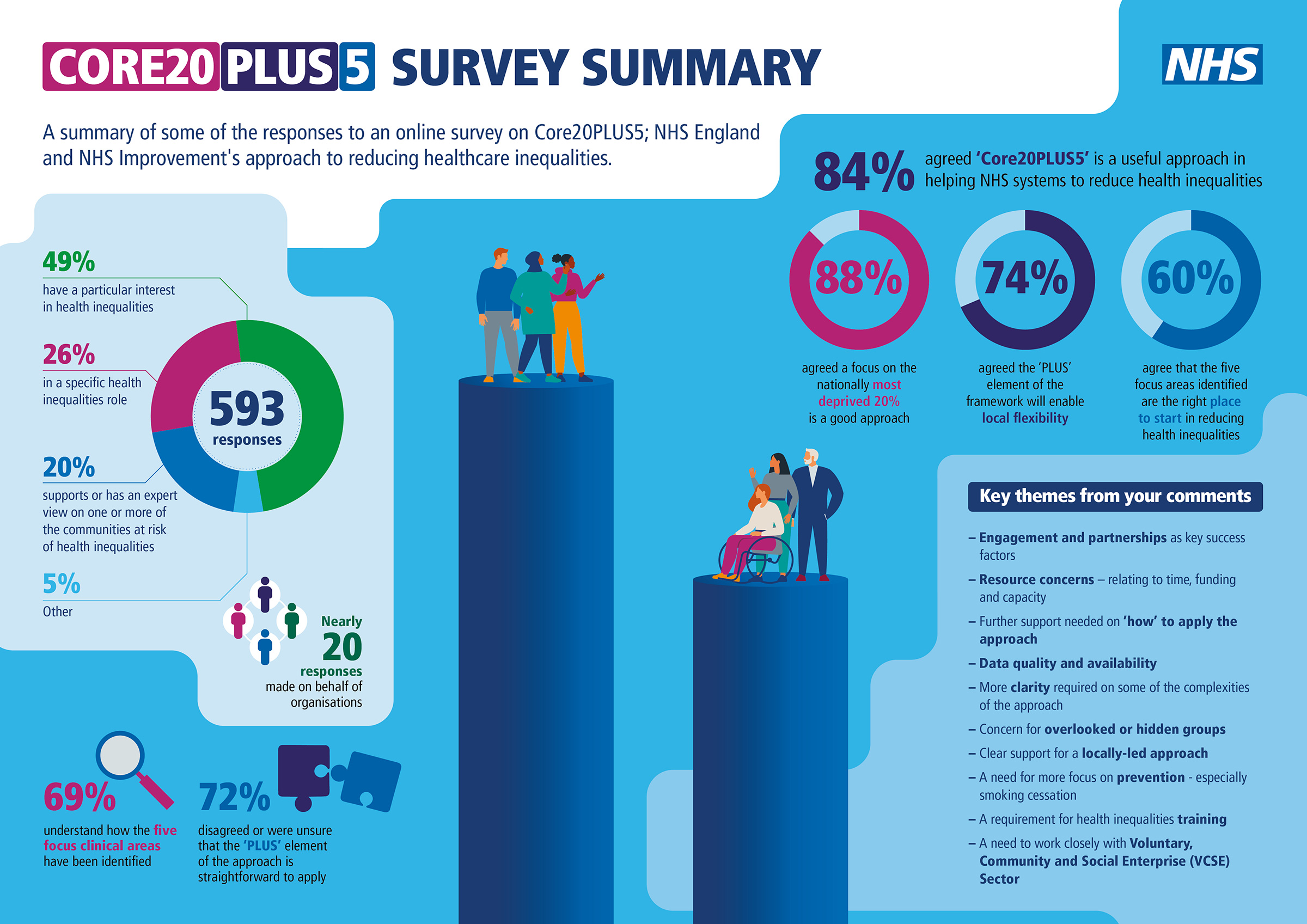Core20PLUS5 – You said, we’re doing…
Paul Gavin, Deputy Director – Healthcare Inequalities Improvement Programme, reflects on the learnings from a recent online survey on Core20PLUS5.
At the end of last year, we launched an online survey to collate your thoughts on Core20PLUS5; our national approach to reducing healthcare inequalities.
We had a brilliant response from nearly 600 people in a variety of positions including people with specific roles in health inequalities and healthcare professionals and others with a particular interest in it. We also heard from many people working in the VCSE sector who have an expert view on the communities our approach is trying to support, and received many submissions on behalf of large organisations too.
We set up the survey as part of our ongoing engagement on the approach. It was designed to give us some initial feedback, help us identify how best we can support implementation of the approach and where we may need to do further engagement.
Download a copy of the above Core20PLUS5 survey summary infographic.
I am encouraged to know that a large majority of you are supportive of the approach and believe it is useful in helping NHS systems to reduce health inequalities. Most of you agree that a focus on the 20% most-deprived is a good idea, that the ‘PLUS’ part of the approach will positively impact inclusion health groups and that the ‘5’ clinical areas are a good place to start – and, importantly, you understand the rationale behind their selection.
We also learned a lot from the survey that we are now building into our plans to help you implement the approach. We are developing some further Core20PLUS5 documentation to address some of the support requests you identified, such as how to identify ‘PLUS’ groups, what data is available to you and more practical ideas on the ‘how’.
We have also just kicked off a series of Core20PLUS5 webinars focussed on the ‘5’ clinical areas highlighted by the approach. I know our Director, Dr Bola Owolabi, is delighted to be co-hosting these webinars with our National Clinical Directors for the programmes and including the voices of service users too wherever we can. We hosted the first maternity webinar last week and heard from Mo who spoke passionately about Continuity of Carer and the positive difference this made to her pregnancy experience.
The survey also raised some of your concerns, particularly around resource, data quality and availability and groups which may be hidden or overlooked. We are working to address these too.
Our Core20PLUS Connectors programme is funding community-based support in 11 sites based across seven regions, and wave 2 of the programme is now open for expressions of interest to fund another 8 sites.
Core20PLUS Connectors are people from underserved communities who can use their experience and community connections to help change local services to support their community better. This approach recognises that people and communities often know what they need and what would work best for them. Your feedback also highlighted the importance of engagement and partnerships which these roles will also help to cultivate.
Our Healthcare Inequalities Improvement Dashboard continues to be improved. Nearly 900 people have access to the dashboard since its launch in November last year and we are seeing the numbers of people using the dashboard to examine data on deprivation and ethnicity grow month by month.
We will continue to engage on Core20PLUS5 so we can address any implementation challenges you face and spread any learning that we can. I want to thank everyone that took the time to share their views with us – it has been an invaluable exercise in helping us to move forward on delivery and design resources to meet your needs. Keep talking to us and sharing your ideas at england.healthinequalities@nhs.net.

